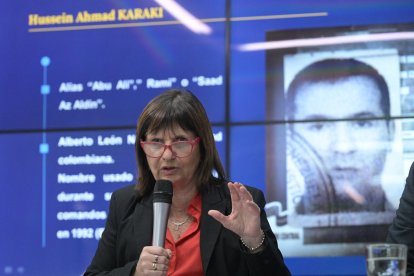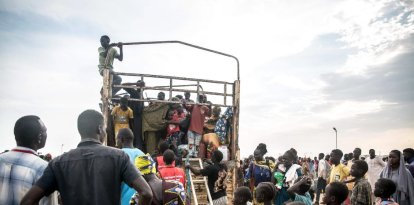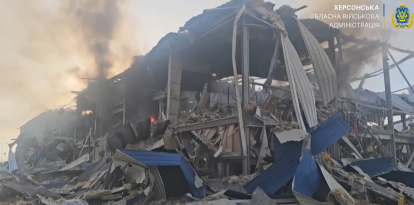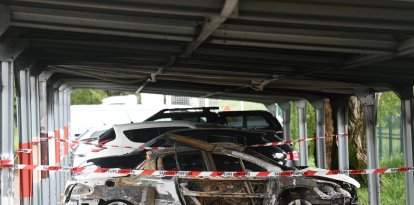Argentina reveals the identity of a Hezbollah leader in Latin America and accomplice of two terrorist attacks in Buenos Aires
Hussein Ahmad Karaki worked directly with Hassan Nasrallah and was involved in the attacks against the Israeli embassy and the Argentine Jewish Mutual Association in the 1990s.

Patricia Bullrich, Argentina's minister of security, shows the photo of Hussein Ahmad Karaki.
Argentina revealed the identity of the operational head of Hezbollah in Latin America. The South American country's government identified Hussein Ahmad Karaki, who worked directly with Hassan Nasrallah, the leader of the Lebanese terrorist organization who was killed by Israel at the end of September this year.
Karaki is accused of carrying out recruitment activities and planning a large number of terrorist operations, such as the attacks against the Israeli embassy in Argentina in 1992, in which 22 people were killed, and two years later against the Argentine Jewish Mutual Association (AMIA), which left 85 people dead.
Infobae accessed the intelligence report, which states that in 1992 Karaki bought the car that was used in the Israeli embassy attack in Buenos Aires using a fake Colombian passport.
Patricia Bullrich, Argentina's minister of security, stated that the terrorist left Argentina hours before the attack.
In addition, although he was reported to have played an active role in the 1994 AMIA bombing, there is still no evidence to prove that Karaki was in Buenos Aires at the time.
The Argentine government also handed over photos of Karaki to the prosecutor's office that is investigating the AMIA bombing. These photos date back to 2004 when the Venezuelan authorities issued him a document with a false identity, the Argentine newspaper added.
It is estimated that the terrorist currently lives in Lebanon.
The report indicates that Karaki "fell off the radar" of Argentine intelligence from 1994 until 2000, when he resumed his activities of recruiting and setting up infrastructure to carry out terrorist attacks in the region.
The report indicates that Karaki was involved in other attacks in several South American countries.
RECOMMENDATION





















